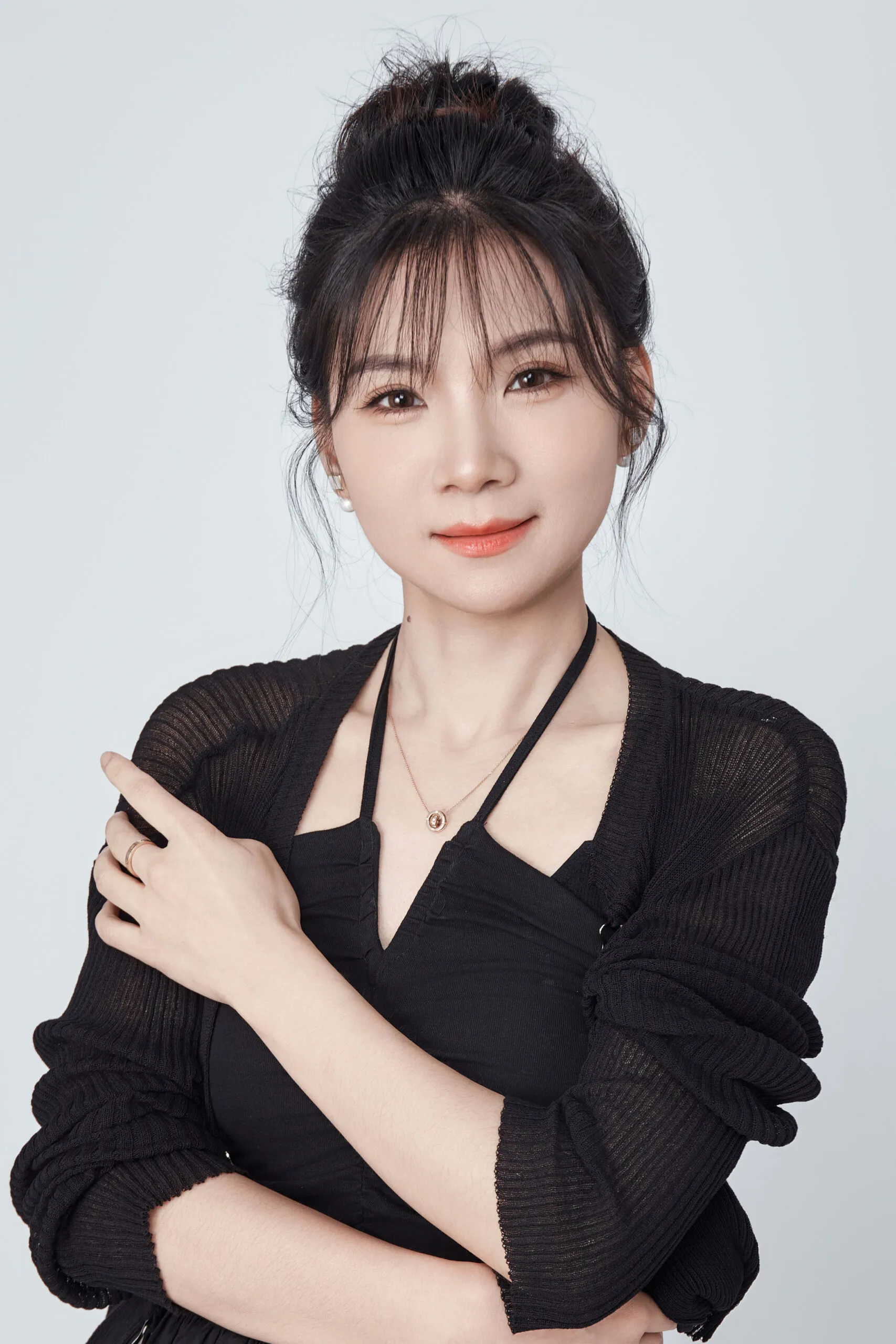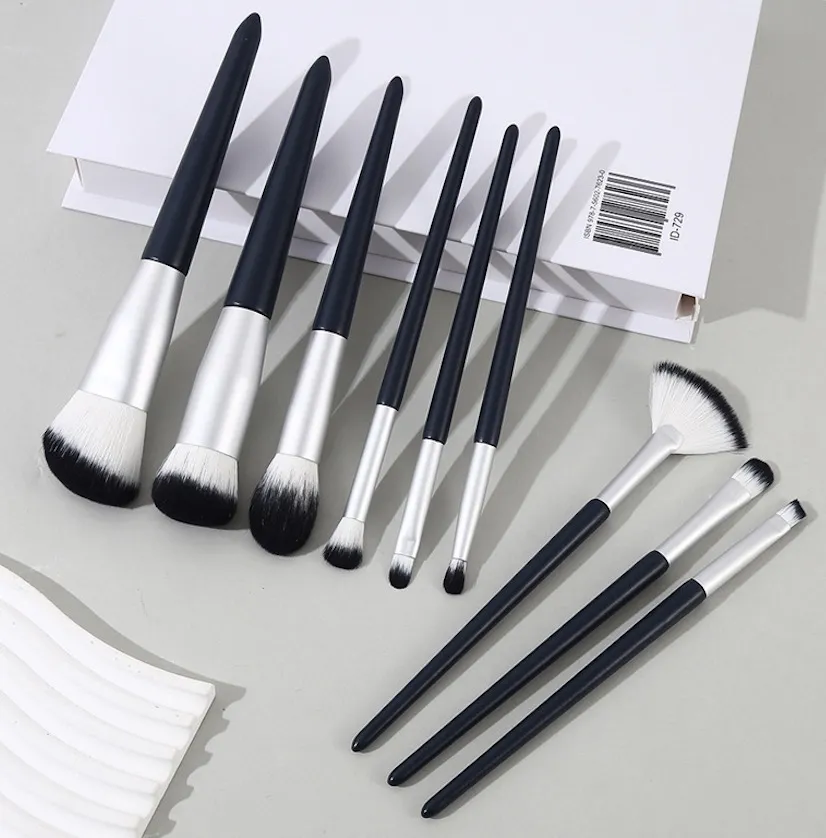Finding a good brush manufacturer is tough. You risk poor quality, missed deadlines, and high minimum orders that can drain your startup’s budget before you even launch.
The best makeup brush set suppliers combine OEM customization1 with low MOQs, verified certifications (ISO, BSCI/SMETA, FSC/EcoVadis), and high QC pass rates. For premium design, look at Taiki. For certified, scalable China OEM, consider ShangYang. For wholesale comparisons, use BeautySourcing or Alibaba.
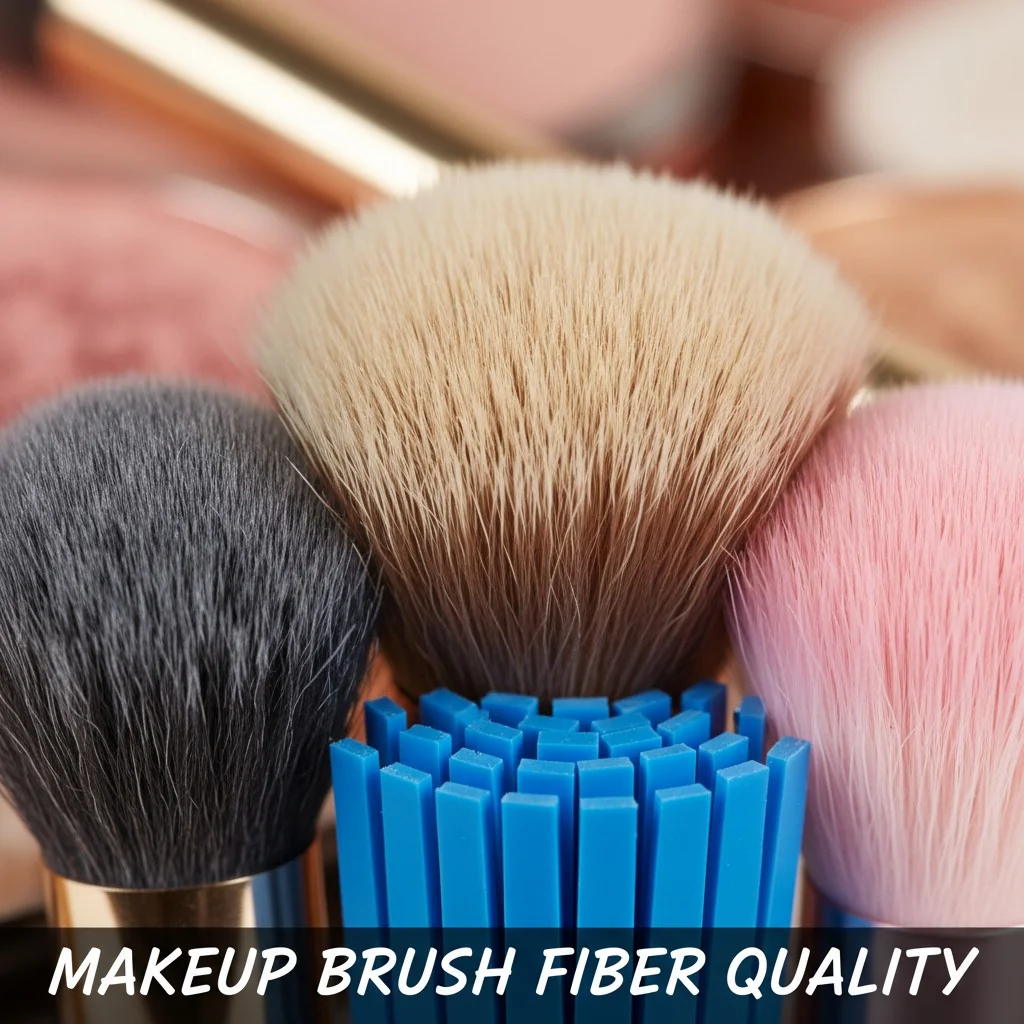
I remember walking the factory floor when I first started. The noise, the smells, the sheer number of moving parts—it was overwhelming. But it taught me one thing: a great makeup brush isn’t an accident. It’s the result of a controlled, transparent, and reliable process. When you search on Alibaba and see over 22,000 listings for "OEM makeup brush sets," it’s easy to get lost. How do you tell the good ones from the bad?
You don’t need to visit the factory floor like I did. You just need to know what to ask. I’m going to break down the exact criteria I use to vet suppliers. These are the four pillars that separate a risky bet from a reliable partner, helping you launch your brand with confidence.
There are over 20,000 OEM makeup brush set listings on Alibaba.True
A search for 'OEM makeup brush sets' on Alibaba returned 22,398 results, indicating a large and competitive supplier market.
All makeup brush factories offer low MOQs of 100 pieces.False
MOQs vary widely. While some factories offer 100 pcs for standard items, fully customized sets often require 1,000 pcs or more.
Certifications & QC: The fastest way to de-risk your first brush set?
Worried about inconsistent quality or getting rejected by retailers? A bad batch can destroy your launch and your reputation. I’ll show you how to use certifications2 to guarantee quality.
Focus on factories that openly share their certifications and QC data. A portfolio with ISO 9001, BSCI/SMETA, and FSC, combined with a 99.5% quality pass rate, is a strong signal of a mature and reliable manufacturing partner.
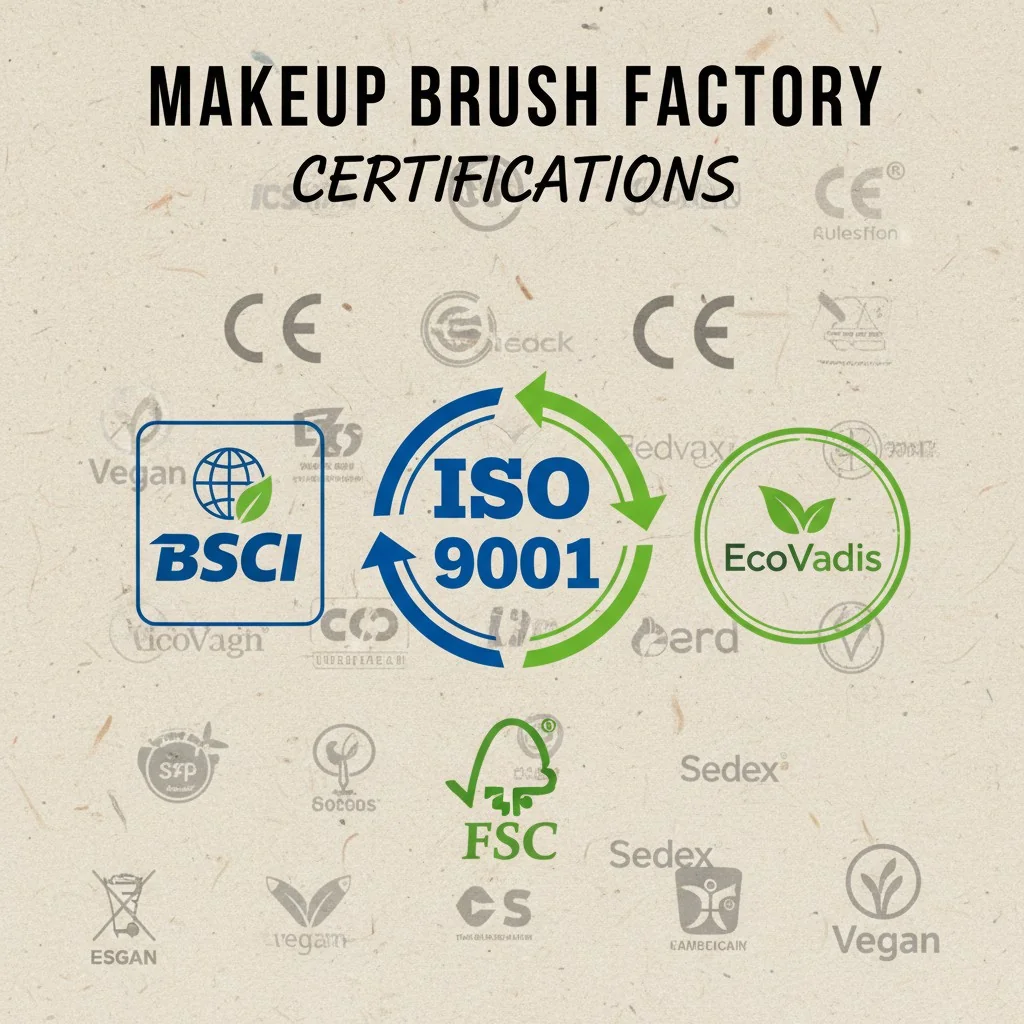
When I work with brand founders like Emily, their biggest fear is that the bulk order won’t match the perfect sample they approved. This is a valid concern. The best way to calm this fear is to look for proof of a factory’s process control before you even order a sample. Certifications are not just logos on a website; they are proof that an independent third party has audited the factory’s systems. A high QC pass rate tells you they catch mistakes before the products ever leave the facility. This saves you time, money, and stress. It’s the fastest way to filter out suppliers who talk a good game but can’t deliver consistently.
Key Certifications to Request
| Certification | What It Means for Your Brand |
|---|---|
| ISO 9001 | The factory has a documented Quality Management System. This means more consistency from batch to batch. |
| BSCI / SMETA | The factory meets social and ethical standards. This is crucial for selling to major retailers in the US and EU. |
| FSC | The paper and wood for your packaging and handles are from responsibly managed forests. A must-have for eco-conscious brands. |
| EcoVadis | The supplier is rated on its overall sustainability performance. This is a powerful signal for "clean beauty" positioning. |
Why QC Rate Matters
A factory’s internal quality control3 (QC) pass rate is a powerful number. A supplier like ShangYang, which advertises a 99.5% qualification rate, is telling you that their internal processes are so refined that only 5 out of every 1,000 brushes have an issue. This means less risk of delays from rework and a higher chance your shipment will be perfect.
A 99.5% QC qualification rate means a factory has almost no defects.True
This rate indicates that 99.5% of products pass quality checks without needing rework, signaling strong process control and reliability.
BSCI certification only covers product quality.False
BSCI (Business Social Compliance Initiative) primarily audits for social and ethical compliance, such as fair labor practices, not just product quality.
MOQ, Lead Time, and Cost Bands: What should startups and DTC brands expect?
As a startup, you need low order quantities. But many factories only want large, high-volume orders. This mismatch can kill your cash flow or stop your brand from ever launching.
Expect MOQs (Minimum Order Quantities) to start around 100 pieces for standard sets and 1,000+ for fully custom designs. Samples can take 7-21 days, while mass production typically requires 30-60 days. Use RFQs on marketplaces to get firm quotes.
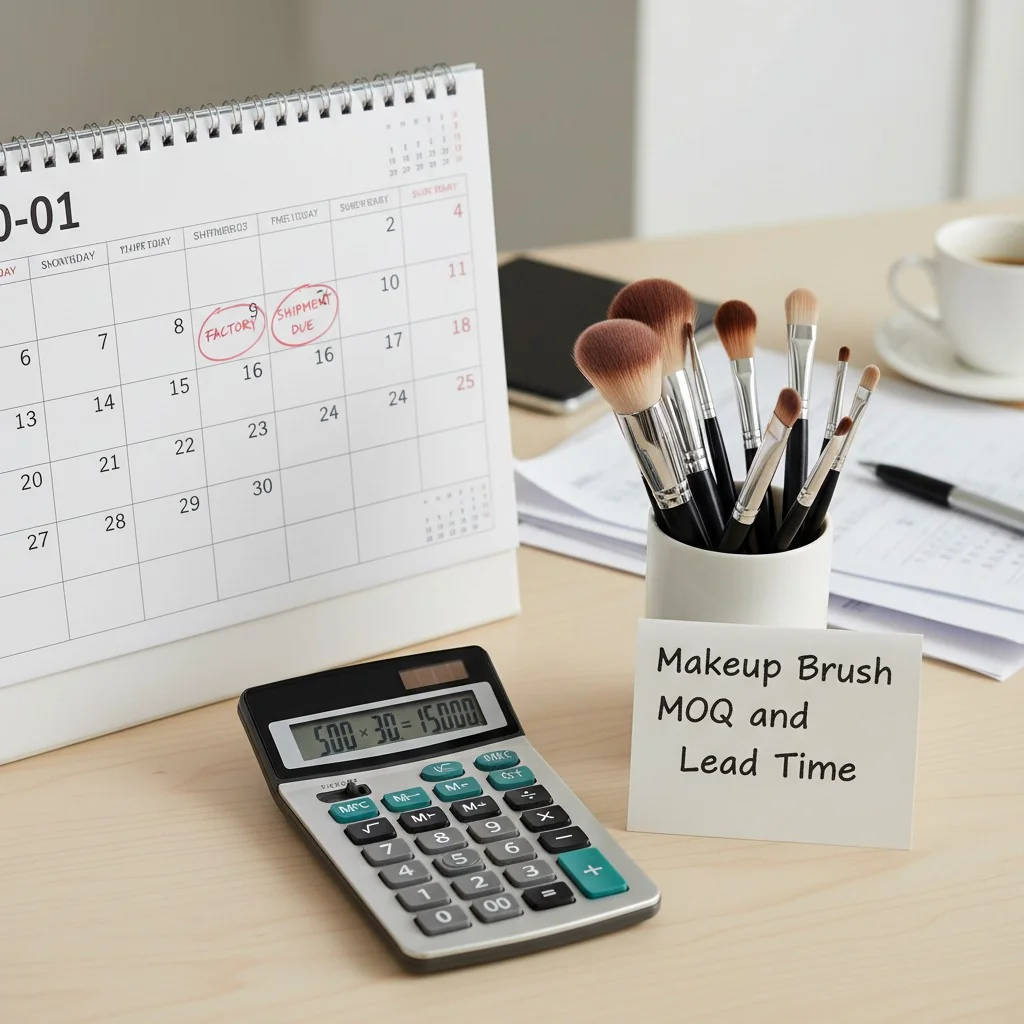
I built my business to help founders like you. I know that ordering 5,000 brush sets isn’t realistic when you’re just starting out. The key is to understand how factories structure their pricing and production. The more custom your brush set is, the higher the MOQ will be. This is because custom tooling (like molds for handles or ferrules) costs money to set up, and the factory needs a larger order to make it worthwhile. When you see the huge range of prices and MOQs on marketplaces, don’t get discouraged. Use it to your advantage. Shortlist 5-10 potential suppliers and send them a detailed Request for Quotation (RFQ). This is the best way to get a real-world understanding of what your project will cost and how long it will take.
Typical Timelines and MOQs
Here’s a general guide to help you plan your launch. Remember, these are just estimates, and a detailed RFQ is the only way to get exact numbers.
| Customization Level | Typical MOQ | Sample lead time4 | Mass Production Lead Time |
|---|---|---|---|
| Standard Product (Stock item with your logo) | 100 – 500 pcs | 7-10 days | 30-45 days |
| Semi-Custom (Custom color/finish on stock shapes) | 500 – 1,000 pcs | 10-14 days | 45-50 days |
| Fully Custom (Unique handle, ferrule, fiber mix) | 1,000 – 3,000+ pcs | 14-21 days | 50-60+ days |
You can get a fully custom makeup brush set with an MOQ of 100 pieces.False
Fully custom sets require new tooling and setup, so factories typically require a minimum order of 1,000 pieces or more to cover these initial costs.
Sample lead times are usually under one month.True
Most suppliers can produce samples within 7 to 21 days, depending on the level of customization required.
Fiber Engineering and Ferrules: What are the performance factors behind great sets?
Your brushes look great, but they don’t perform. The fibers are scratchy or don’t pick up product well. Inconsistent quality leads to bad reviews and kills customer trust. You need to understand the science behind a good brush.
Performance comes from the fiber’s technical specs: crimp (for pickup), taper (for softness), and denier (for density). Factories with in-house fiber R&D offer better consistency. Pair quality fibers with durable, double-crimped recycled aluminum or brass ferrules.

This is where my factory-floor experience really comes in handy. I’ve seen firsthand how a tiny change in a fiber’s shape can completely change how it feels and performs. A common problem for brands is getting a set where one brush feels amazing and another feels cheap. This often happens when a factory just buys whatever fiber is available on the open market. The best manufacturers have their own in-house fiber engineering5. They control the raw materials and the extrusion process, so they can guarantee every single fiber meets your exact specifications. When you talk to a potential supplier, ask them about their fibers. If they can give you a spec sheet with details on denier, taper, and crimp, you know you’re talking to an expert.
Key Brush Components Explained
| Component | What to Look For | Why It Matters |
|---|---|---|
| Fibers | Specifics on taper, crimp, and denier. In-house R&D is a huge plus. | These specs determine softness, product pickup, and application performance. In-house control ensures batch-to-batch consistency. |
| Ferrules | Recycled aluminum or brass. Look for double crimping. | Aluminum is lightweight and recyclable. Brass is heavier and feels more luxurious. Double crimping secures the fibers and handle, preventing shedding. |
| Handles | FSC-certified wood, bamboo, or recycled plastic. Check for balanced weight. | Sustainable materials are in high demand. A well-balanced handle feels better in the hand and provides more control during application. |
A brush's softness is determined by the fiber's taper.True
The finer and longer the taper at the tip of the fiber, the softer the brush will feel on the skin.
All synthetic fibers perform the same.False
Fiber performance varies greatly based on its material, denier (thickness), crimp (waviness), and taper. Factories with R&D can engineer fibers for specific uses, like blending or packing.
Sustainable Private Label: What about vegan fibers, FSC packaging, and recycled metals?
Your customers are asking for vegan and eco-friendly products. But without the right materials and certifications, you can’t make those claims and risk being seen as inauthentic.
To meet market demand, especially in the US and EU, prioritize suppliers who offer vegan fibers6, recycled aluminum/brass ferrules, and FSC-certified packaging. Certifications like EcoVadis and BSCI further validate a factory’s commitment to sustainability.
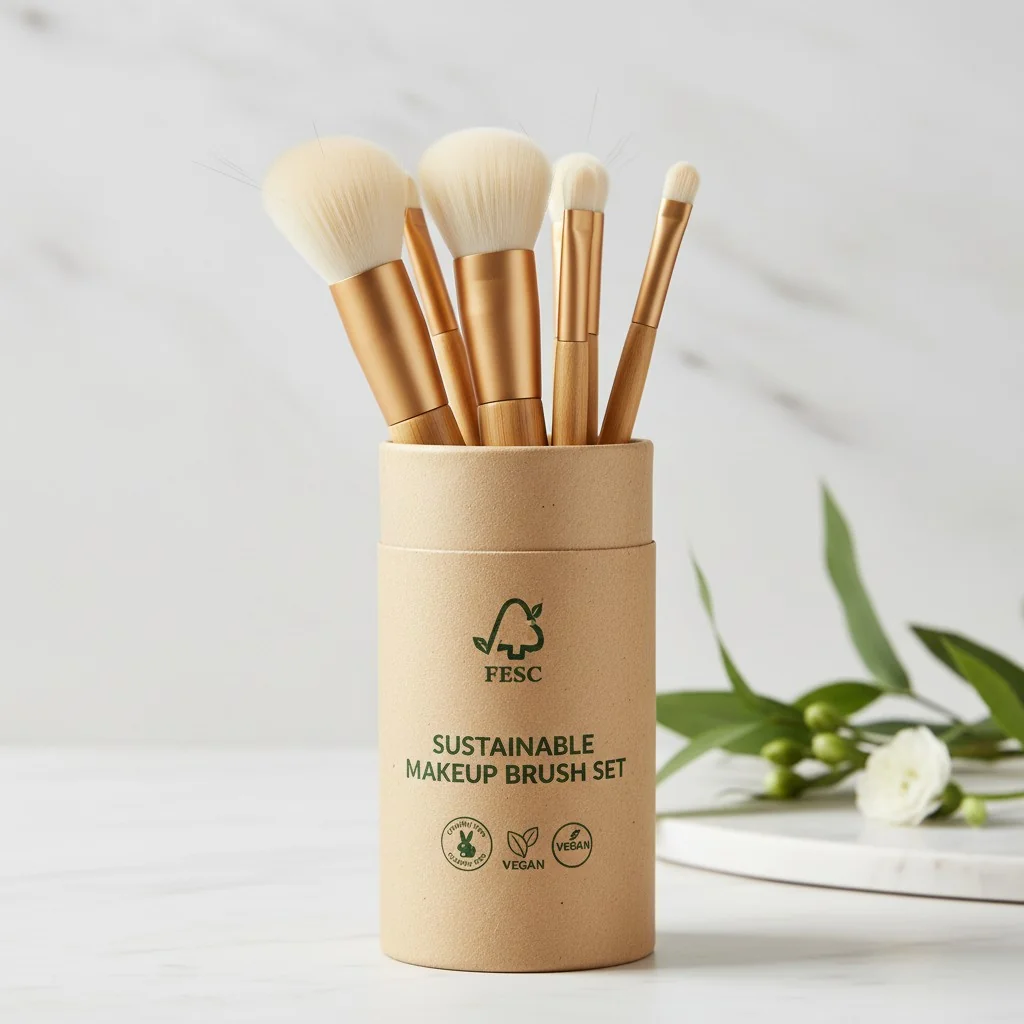
Sustainability isn’t a trend anymore; it’s a requirement. For brand founders like Emily, having a strong eco-friendly story is a major selling point. The good news is that the supply chain has caught up. It’s now easier than ever to create a high-performance brush set that is also kind to the planet. When I started my factory, finding high-quality recycled aluminum was a challenge. Now, it’s a standard option. The same goes for vegan fibers—the technology has advanced so much that they can outperform natural hair for many applications. Don’t just take a supplier’s word for it. Ask for the documentation. A serious partner will be proud to show you their FSC chain of custody number or their latest EcoVadis scorecard.
Your Sustainable Sourcing Checklist
Ask potential suppliers if they can provide the following. The best partners will have these readily available.
- Fibers:
- 100% Vegan and Cruelty-Free declaration
- Options for biodegradable or plant-based fibers
- Ferrules:
- Post-Consumer Recycled (PCR) aluminum or brass options
- Documentation proving recycled content percentage
- Handles:
- FSC-certified wood or bamboo
- Recycled plastic or PLA (polylactic acid) options
- Packaging:
- FSC-certified paper boxes or tubes
- Use of soy-based inks for printing
- Factory-Level Proof:
- Valid BSCI/SMETA audit report
- EcoVadis sustainability rating
FSC-certified packaging ensures the paper comes from recycled sources only.False
FSC (Forest Stewardship Council) certification ensures paper comes from responsibly managed forests, which may include a mix of virgin and recycled fibers, not exclusively recycled ones.
Vegan makeup brushes can perform as well as natural hair brushes.True
Modern synthetic fiber technology allows for the creation of vegan bristles with specific tapers and textures that mimic or even exceed the performance of natural hair for liquid and cream products.
Conclusion
Finding the right manufacturer is about more than just price. It’s about finding a partner with proven quality systems, flexible MOQs, technical expertise, and a commitment to sustainability.
References
-
Understanding OEM customization can help you find manufacturers that meet your specific design needs. ↩
-
Certifications ensure quality and ethical practices, making them crucial for reliable partnerships. ↩
-
Quality control is vital for maintaining product standards and customer satisfaction. ↩
-
Understanding lead times helps in planning product launches and managing customer expectations. ↩
-
Fiber engineering affects brush performance; understanding it can lead to better product choices. ↩
-
Vegan fibers are increasingly popular; knowing their benefits can enhance your product line. ↩

